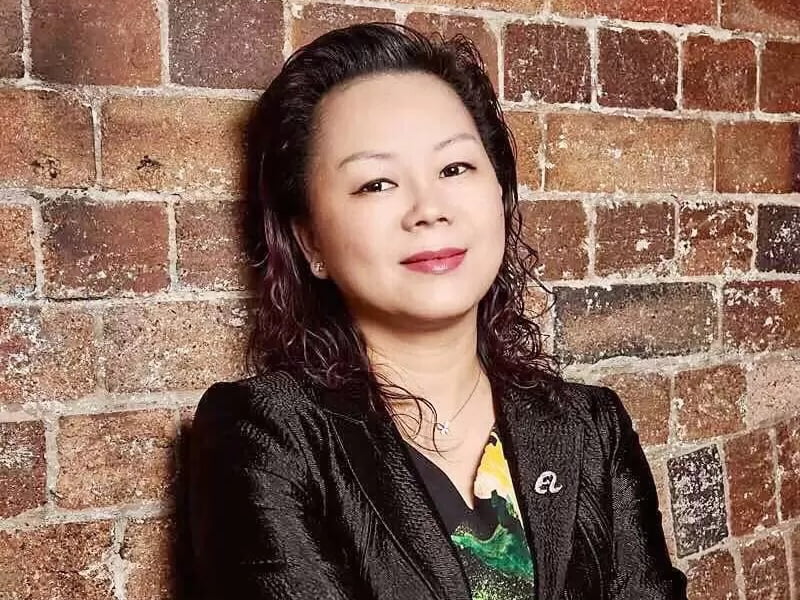On the eve of the Alibaba Group’s famous 11.11 global shopping festival, the world is battening down the hatches in preparation for a deluge of gigantic numbers. Records will tumble: More shoppers, more sales, more merchants, more transactions, more packages, more money.
And to hear Alibaba co-founder and executive vice-chairman Joe Tsai tell it, the concept of buying globally and selling globally – from a mass-market, business to consumer perspective is really only just starting.
The eCommerce phenomena was not invented in China, but China is now unquestionably its global driving force.

The collective purchasing power of 1.3 billion Chinese, coupled with 20-odd years of low double-digit annual real wage growth in China has created a consumption monster with a voracious appetite (increasingly for international goods.) Add to this mix the ubiquitous smartphone and you start to see how this beast got so big.
The Alibaba’s 11.11 festival puts a marketing spotlight on that consumptive power for a day each November 11. But the reality is this is 365 day a year opportunity, and its one where Australian brands have been late to the game.
So first to the numbers. In 2016, the 11.11 festival attracted hundreds of millions of shoppers to the platform. It created 657 million separate parcels for delivery, through peak transactions of 175,000 per second generating US$17.8 billion in gross sales. All in a frenetic 24-hours on a single platform.
In the several days that follow the festival, tens of millions of people will be deployed across the globe of fulfilment missions – literally delivering the goods ordered in a frenetic 24
Last year, about 100,000 brands sold products though the festival.
“This year we will have more than 140,000 brands that are going to be doing business on the Alibaba platform, trying to reach Chinese consumers,” Joe Tsai told a media conference in Shanghai on Friday evening – just ahead of the mid-night launch of the festival.
“That’s a 40 per cent increase compared to a year ago. And of those 140,000 brands, 60,000 of them are international brands, really a representation of the international nature of the festival.”
That 40 per cent increase in brands participating in the festival is an indicator for growth in the broader numbers for this year’s 11.11. Forecasts are suggesting gross sales of US$23 billion to $24 billion.
There are a few things worth keeping an eye on this year beyond the raw numbers, Joe Tsai says, foremost of which is its progress toward the “new retail” concept. Alibaba reckons it has made substantial progress in bringing together the online and offline retail experience – the holy grail of retail.
“Today’s consumer expectations are getting higher and higher. It means we have to work harder and harder to implement a retail strategy in order to satisfy those expectations,” he said.
What’s driving the incredible growth of the 11.11 Singles Day is the power of the Chinese consumer. There are more than 300 million middle class consumers in China, a number that is expected to double by 2020.
Every year, disposable income grows, and every year – according to Joe Tsai – this group wants better quality goods and they want a better quality of life.
“This powerful group is propelling the consumption [trends] in China and will shift the economy from an export and investment-driven economy and into a consumption economy,” Mr Tsai saod.
“Consumption as a percentage of GDP in China is only about 40 per cent. But if you look at the developed markets like the United States, consumption is approaching 70 per cent,” he said.
In a Chinese economy worth about US$12 trillion, that’s about US$4.5 trillion in consumption. But as that proportion gets toward 70 per cent, it is going to be a very significant number – somewhere around US$7 trillion or US$8 trillion.
“In 1999, when Alibaba was founded, the GDP per capita in China was $870. Today the GDP per capita is more than $8,000. That’s a 10x increase in GDP per capita in just the last 18 years.”
The high growth in real wages and the relatively high levels of household savings in China “has resulted in a huge amount of surplus cash on the household balance sheet,” Mr Tsai said.
All of which amounts to incredible consumption power in China that is driving online commerce and festivals like 11.11.
Which brings us to Australia and its belatedly growing interest in the China market. There are about 1,300 Australian and 400 New Zealand brands on Alibaba’s Tmall and Tmall Global platforms.
The Alibaba Group officially set up in Australia just last February with long-time employee Maggie Zhou installed as managing director.
“Our focus is really to enable merchants in Australia and New Zealand to create opportunities (on the Alibaba [platform], Ms Zhou said.
“If they can sell more product into China and get access to other markets, then they are going to thrive,” she said.
Alibaba has launched the Taobao World service – a platform that promotes China-based brands to the worlds 100 million-plus overseas ethnic Chinese.
The Taobao World service was established in ASEAN as its first base of operations. But the company setup the service in Australia as its first western market – a test bed of 1.2 million ethnic Chinese in Australia before moving to the US, Canada and Europe.
James Riley traveled to Shanghai as a guest of the Alibaba Group.
Do you know more? Contact James Riley via Email.

